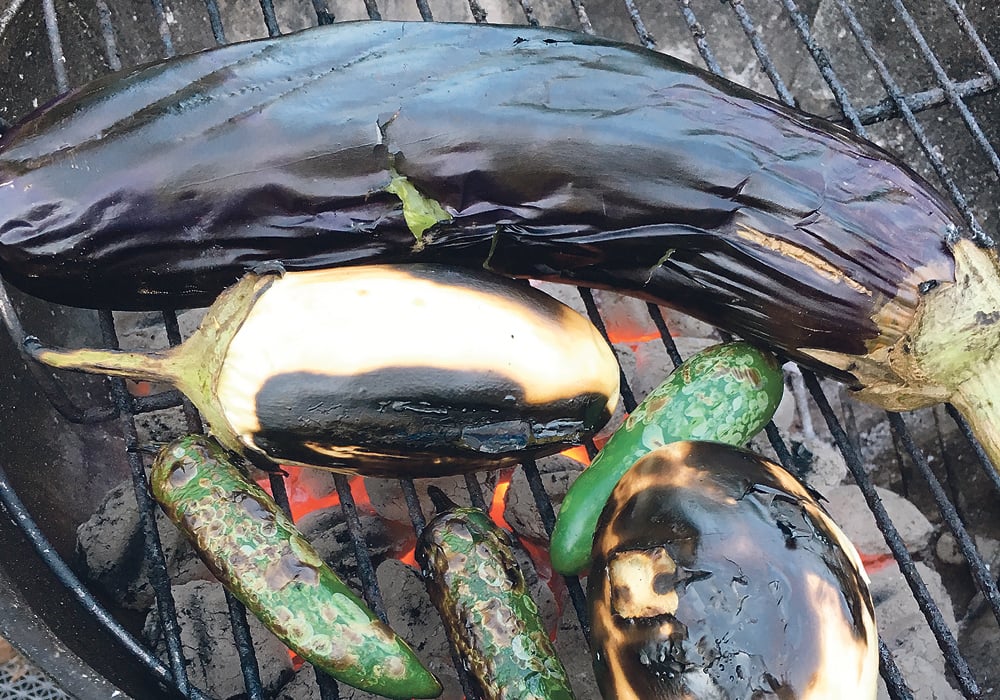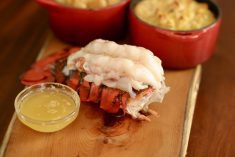Eggplant, also called aubergine, originated in India where it continues to grow wild. As trade routes opened, eggplant was introduced to Europe by the Arabs and transported to Africa by the Persians. The Spaniards carried it with them to the New World and, by the early 1800s, both white and purple varieties could be found in North American gardens.
Some people cannot tolerate eating nightshades such as tomatoes, potatoes, peppers and eggplants. But for most they are an excellent source of dietary fibre, vitamin B1 and copper.
Read Also

Agri-business and farms front and centre for Alberta’s Open Farm Days
Open Farm Days continues to enjoy success in its 14th year running, as Alberta farms and agri-businesses were showcased to increase awareness on how food gets to the dinner plate.
Eggplant is a good source of manganese, vitamin B6, niacin, potassium, folate and vitamin K.
They are best stored in a cool place, outside the refrigerator.
Eggplant flesh easily absorbs oil in a skillet. To avoid having a dish that is too greasy, put slices brushed with olive oil in the oven or on the barbecue until tender.
You can also reduce its sponginess by sprinkling slices with salt and wait 30 minutes before rinsing them with water and drying with a clean towel.
Vegetable Moussaka
- 3 1/2 lb. eggplant, unpeeled, cut into 1/2-inch-thick rounds 1.5 kg/1.25 cm
- 1/2 c. olive oil, about 125 mL
- 1 large onion, thinly sliced
- 1 c. finely chopped peeled carrots 250 mL
- 1 c. finely chopped celery 250 mL
- 4 garlic cloves, minced
- 12 oz. portobello mushrooms, cut into 1/2-inch pieces 340 g/1.25 cm
- 1 tsp. dried oregano 5 mL
- 1/2 tsp. ground cinnamon 2 mL
- 1 28 fl. oz. can crushed tomatoes with added puree 795 mL
- 1/4 c. chopped fresh Italian parsley 60 mL
- 1 c. grated Parmesan cheese 250 mL
- 6 tbsp. butter 90 mL
- 1/2 c. all-purpose flour 125 mL
- 3 1/2 c. whole milk 875 mL
- 4 large egg yolks
Cover two baking sheets with paper towels. Sprinkle both sides of eggplant rounds with salt. Arrange eggplant in single layer atop towels. Let stand 30 minutes.
Position first rack in bottom third of oven and second rack in top third of oven and preheat to 425 F (220 C).
Remove eggplant and paper towels from baking sheets. Pat eggplant dry. Oil same baking sheets. Brush both sides of eggplant rounds with 1/4 cup (60 mL) oil. Arrange in single layer on baking sheets.
Bake 10 minutes. Turn eggplant and rotate pans in oven. Continue baking until tender, about 15 minutes longer. Cool. Reduce oven temperature to 350 F (180 C).
Meanwhile, heat 1/4 cup (60 mL) oil in heavy large skillet over medium-high heat. Add onion, carrots and celery. Sauté until onion is very tender, about 12 minutes.
Mix in garlic, then mushrooms. Sauté until juices evaporate, about 10 minutes.
Mix in oregano and cinnamon.
Add tomatoes and parsley.
Cook until mixture is thick, about 10 minutes. Season with salt and pepper.
Lightly oil a 9 x 13 inch (22 x 33 cm) glass baking dish. Arrange half of eggplant rounds in single layer in dish. Spoon half of tomato mixture evenly over eggplant. Sprinkle with two tablespoons (30 mL) cheese. Repeat layering with remaining eggplant, tomato mixture and two tablespoons (30 mL) cheese.
Melt butter in heavy medium saucepan over medium heat. Whisk in flour. Stir 2 minutes. Gradually whisk in milk.
Simmer until sauce thickens, stirring constantly, about five minutes. Whisk in 1/2 cup (125 mL) cheese. Season with salt and pepper. Whisk yolks in large bowl to blend. Gradually whisk in hot sauce.
Pour sauce over vegetables in dish. Sprinkle 1/4 cup (60 mL) cheese over sauce. This can be made one day ahead. Cover and chill.
Bake moussaka until heated through and sauce is golden brown on top, about 45 minutes. Refrigerated moussaka will take about 10 minutes longer. Cool 15 minutes. Makes eight servings.
Baba Ganoush
- 2 medium-sized eggplants
- 2 tbsp. tahini 30 mL
- 1 tsp. coarse salt 5 mL
- 3 tbsp. freshly squeezed lemon juice 45 mL
- 3 cloves garlic, peeled and smashed
- 1 tbsp. olive oil 15 mL
- 1/4 c. chopped flat leaf parsley 60 mL
Prick each eggplant a few times, then char the outside of the eggplants by placing them directly on the hot coals of a barbecue or a hot gas barbecue. Turn them until the eggplants are uniformly charred on the outside. Move them away from the heat and let them continue to cook until very soft.
Let cool. Split the eggplant and scrape out the pulp. Puree the pulp in a blender or food processor with the other ingredients until smooth.
Taste, and season with additional salt and lemon juice, if necessary. Chill for a few hours before serving. Serve with crackers, sliced baguette, or toasted pita chips.
Baba Ganoush can be made and refrigerated for up to five days before serving.
Smoky Eggplant Soup
- 2 lb. small firm eggplants 1 kg
- 5 tbsp. olive oil 75 mL
- 2 c. sliced white or yellow onion 500 mL
- salt and pepper
- 6 garlic cloves, minced
- pinch cayenne
- 6 c. chicken or vegetable stock 1.5 L
- 3 to 4 tbsp. lemon juice 45 – 60 mL
- 1/2 tsp. lemon zest 2 mL
- 2 tsp. chopped parsley 5 mL
Poke two or three holes in eggplants with a paring knife, then place on a baking sheet under hot broiler, about two inches (five centimetres) from element.
Cook for three or four minutes, allowing skins to blacken and char. Turn and cook on other side until eggplants have softened completely, about four minutes more.
Set aside to cool, then remove and discard skins and roughly chop eggplant flesh.
Meanwhile, put three tablespoons (45 mL) olive oil in a heavy-bottomed soup pot over medium high heat.
Add onion, season generously with salt and pepper, and cook until softened and beginning to color, five to seven minutes.
Add garlic, cayenne and reserved eggplant and cook one minute more, then add stock and bring to a simmer. Maintain a gentle simmer for 10 minutes. Add more salt, if necessary.
Cool slightly then puree soup in batches in blender. Strain through fine-meshed sieve by pressing it with the back of a spoon and discard solids.
Add three tablespoons (45 mL) lemon juice to pureed soup and taste again, adding more as necessary. Soup should be well seasoned and lemony tasting.
Mix lemon zest with remaining two tablespoons (30 mL) olive oil for garnish. Ladle soup into small bowls, topping each bowl with one teaspoon (5 mL) lemon oil and some chopped parsley. May be served hot or cold.
Sarah Galvin is a home economist, teacher and farmers’ market vendor at Swift Current, Sask., and a member of Team Resources. She writes a blog at allourfingersinthepie.blogspot.ca. Contact: team@producer.com.















